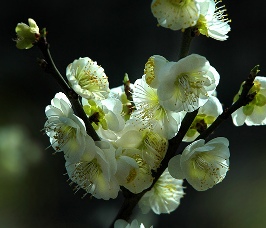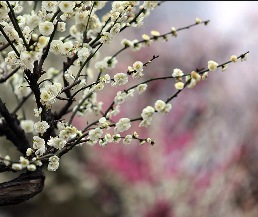 Listen to Shirley Singing the Poem in Chinese & English March 30,2012
Listen to Shirley Singing the Poem in Chinese & English March 30,2012 Listen to Shirley Explaining the Poem & the Culture of Plum Blossom
Listen to Shirley Explaining the Poem & the Culture of Plum Blossom Follow Shirley to Read the New Words & the Poem in Chinese
Follow Shirley to Read the New Words & the Poem in Chinese Learn the Meaning of the Poem With Shirley Together
Learn the Meaning of the Poem With Shirley Together See Shirley Created Picture for the Poem April 1, 2012
See Shirley Created Picture for the Poem April 1, 2012 See Shirley Created Picture for the Poem August 21, 2011
See Shirley Created Picture for the Poem August 21, 2011 See Shirley Created Picture for the Poem August, 2010
See Shirley Created Picture for the Poem August, 2010 About the Poet
About the Poet  If you have any questions, comments and suggestions, please write to shirley@ebridge.cn or shirleyz004@yahoo.com. You are welcome to publish your opinions in Message Board as well.
If you have any questions, comments and suggestions, please write to shirley@ebridge.cn or shirleyz004@yahoo.com. You are welcome to publish your opinions in Message Board as well. Shirley Zhang